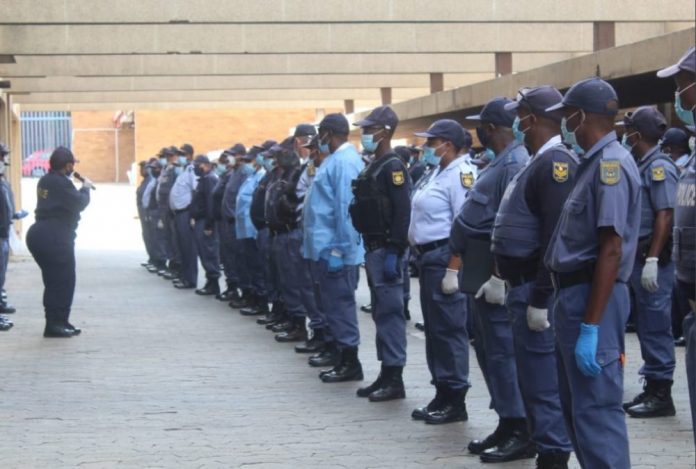Johannesburg – South African traffic officers will be issued with body cameras to help gather evidence and improve the conviction rate for traffic law violators.
Addressing the launch of the Easter Road Safety campaign on Monday on the N4 Bapong Weighbridge in the North West, Deputy Minister of Transport Dikeledi Magadzi said South Africa is ready to issue traffic officers with body cameras.
“As the Road Traffic Management Corporation (RTMC) rolls out the use of body cameras within the fraternity over the next 3 to 5 years, we aim to improve the levels of service and ensure that this is executed to serve and protect our road users,” Magadzi said.
The Deputy Minister said these cameras will further act as a deterrent for corruption, effectively preventing officers from soliciting or accepting bribes from motorists.
“Every interaction a traffic law enforcement officer has with a motorist will be recorded. Starting this Easter, there will be nowhere to hide for those who live beyond their means and finance their lavish lifestyles through bribes, at the expense of the law abiding citizens on the roads.
“Traffic law enforcement will stop being an enrichment scheme for the unethical, unscrupulous, greedy and corrupt officers who undermine our efforts to bring discipline on our roads and arrest the carnage,” she said.
In addition, government is strengthening law enforcement by investing in drones.
“These drones will assist to proactively identify hazards on the roads, and to identify motorists who are driving recklessly and at unacceptably high speeds.
“Officers will then be deployed strategically to respond using the live intelligence supplied by this technology. I must, however, hasten to add that consultations are still ongoing with the justice crime prevention and security cluster to ensure that evidence gathered through the use of these drones is admissible and leads to a higher conviction rate,” the Deputy Minister said.
This Easter will see increased volumes on the roads and across land borders with neighbouring countries, as citizens and tourists use this period to engage in social, cultural and religious activities.
“The four-day Easter weekend is a period where we lose no less than 230 lives each year. In 2020, despite the hard lockdown and travel restrictions, 38 people lost their lives.
“It is important for us to take note that the majority of fatal crashes occur at night. More than 70% of the hit and runs happen at night,” the Deputy Minister said.
She encouraged road users to avoid travelling at night, not only to observe the curfew hours, but also keep safe from the hazards that are mostly prevalent at night.
According to an analysis of road crash information, one in five fatal crashes are simply single vehicles overturning. This is due to various contributory factors, which include excessive speeding, fatigue, drinking and driving, driving under the influence of narcotics as well as overloading of passengers and goods.
“Road Safety is our collective responsibility. It is equally through collective effort that we can force a change in our behaviour on the road,” the Deputy Minister said.
– SAnews.gov.za
Follow @SundayWorldZA on Twitter and @sundayworldza on Instagram, or like our Facebook Page, Sunday World, by clicking here for the latest breaking news in South Africa. To Subscribe to Sunday World, click here.
Sunday World



